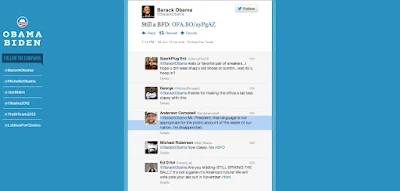The Wall Street Journal
here agrees that the ObamaCare ruling has simply and incorrectly shifted government's drive for unlimited power over the people under a different part of the constitution, the taxing power, than the court had heretofore been accustomed to use, namely the commerce clause:
[Roberts'] gambit substitutes one unconstitutional expansion of government power for another and rearranges the constitutional architecture of the U.S. political system. ...
The rest of the column is a very useful and informative discussion of indirect vs. direct taxation, but it does not really make the proper equation demanded by the reasoning of the John Roberts' opinion. Since the tax penalty only arises when one fails to pay for health insurance, there is effectively no difference between the tax penalty which will have to be paid by those going without coverage and the premiums paid by those who have coverage.
Going forward under ObamaCare, if the refusal to buy health insurance results in a tax (which is in reality an unconstitutional police-power-type penalty, or fine), then the purchase of health insurance must be understood as a tax, too (penalty, fine). When the IRS comes calling, those who "gave at the office" are generally going to be treated as having already paid.
I don't think the editorial is correct to say this is somehow a new kind of tax which is really neither an income nor an excise. I think it's pretty clear that ObamaCare is a form of (increased) income taxation.
The tax penalty paid for not having insurance will be based on income. Government subsidy to purchase insurance will be based on income. Affordability of plans offered by employers will be scrutinized based on income paid to employees, and on and on. The IRS' new, main, and very intrusive interest will be in determining household income for purposes of ObamaCare compliance and participation. So it looks to me like it's all about income and comes under the income taxation umbrella, however tortured it may at first appear.
There is a longish discussion of this from the income angle by Liz MacDonald
here which makes it pretty clear how everything in ObamaCare hangs on income, including this:
The percentage of income penalty rises at a lower rate than the fixed dollar amount, from 1% in 2014, to 2% in 2015, and to 2.5% in 2016 and after, and then is capped at the national average premium for what’s called “bronze” coverage, which provides the least amount of coverage under the new law, 60% before the patient must chip in for co-insurance, deductibles and co-payments.
Capping the penalty at the national average premium level for basic coverage means you're paying the basic premium. So the premium becomes a tax becomes a premium. It's all designed to fund the system, which is what taxes do. Penalties punish people for breaking the law. But lawbreakers under ObamaCare will be punished with Bronze Level Healthcare, which is why Roberts had to rewrite the law from the bench, construing the penalties as taxes, in order to save ObamaCare.
That was a political act, as The Wall Street Journal rightly goes on to say:
If this understanding is correct, then Chief Justice Roberts behaved like a politician, which is more corrosive to the rule of law and the Court's legitimacy than any abuse it would have taken from a ruling that President Obama disliked. The irony is that the Chief Justice's cheering section is praising his political skills, not his reasoning. Judges are not supposed to invent political compromises.If anything good comes of this, maybe a new interest will develop out there to repeal the income tax once and for all as a way of getting rid of this new, very expensive and unconstitutional, monstrosity called ObamaCare.



.jpg)






